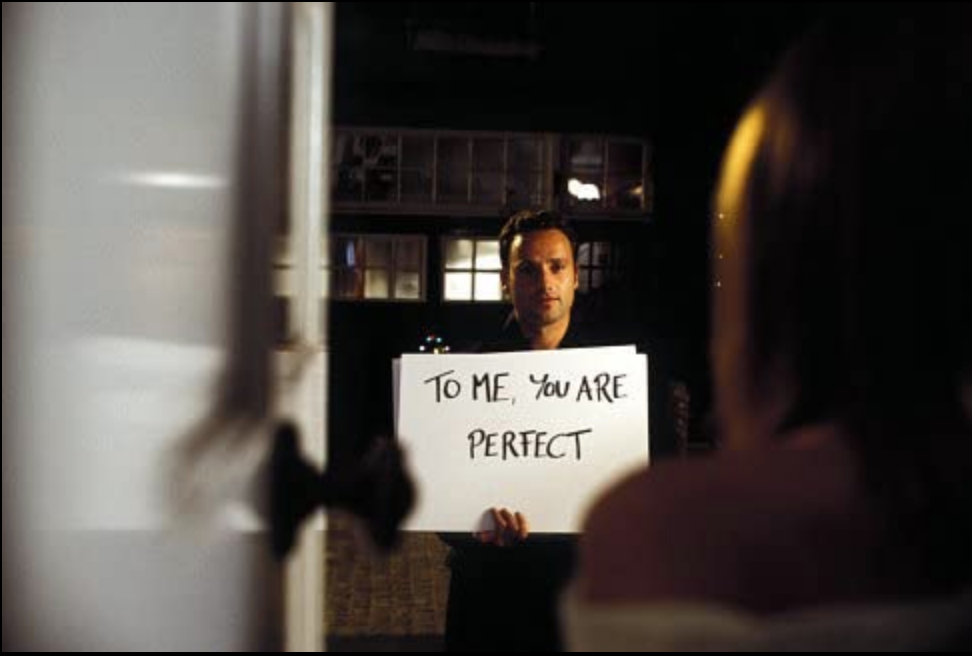Opinion: Where do we get our ideas about relationships?
“Love Actually” is a classic rom-com beloved by many, but I cannot stand that movie.
One of the big reasons I don’t like the film is the infamous card scene where Mark declares his love for his best friend’s wife, Juliet. Romantic movies, especially rom-coms, tend to reinforce gender roles and forgive attractive people for dangerous patterns of behavior like stalking, excessive jealousy and overstepping boundaries.
Another example of the behaviors that Hollywood glamorizes is kissing someone to stop them from speaking, like the scene at the end of “He’s Just Not That Into You” between Gigi and Alex. This typically is instigated by the guy, especially when the girl is defending herself or explaining why something he did was wrong or hurtful. This reinforces the idea that women have to be complacent and tolerate toxicity and even abuse from their male partners.
Hollywood also promotes the practice of neglecting friendships for the sake of a relationship. Not only is this detrimental to the friendship, it is also unhealthy to spend all of your free time with a significant other. It’s understandable to want to spend time with your significant other, but you should have friends and hobbies and be able to exist happily outside of each other.
This reflects a recurring theme in the media: the romaticization of toxic and problematic behaviors. Hollywood isn’t the only guilty party. Hollywood produces toxic and abusive relationships and social media further glamorizes them and spreads them to a wider audience.
There are plenty of examples of abusive couples that have a huge fanbase on social media ーHarley Quinn and the Joker are an example of this. The hashtag #Jarley has over 57,000 posts on Instagram. This makes younger audiences more likely to see this type of content and normalizes it for them. This negatively impacts their perception of a healthy relationship and will make it more likely for them to end up in a toxic and possibly even abusive relationship.
Another problem that social media presents in regards to relationships is the so-called “fear of missing out,” or FOMO. Seeing supposedly-happy couples in your feed can create FOMO and make you ignore red flags or feel pressured to rush into a relationship that you aren’t ready for. It could also make you stay with a toxic partner because you don’t want to deal with the stigma of being alone.

Ginnifer Goodwin (Gigi) and Justin Long (Alex) in He’s Just Not That Into You (2009) (IMDB)
FOMO also applies to platonic friendships as well. Seeing people hanging out and constantly posting about it can make you feel lonely and cause you to maintain friendships that aren’t good for your mental health. It may also push you to go for quantity over quality in order to appear likeable and fun.
Social media is not a reliable place to look for examples in regards to healthy relationships because everything is extremely filtered — most people use it as a way to showcase the highlights. People often leave out the not-so-pretty aspects of a relationship when posting about them on social media.
Healthy relationships are often not portrayed in movies because there isn’t as much drama for lazy screenwriters to produce. This is bad because it creates repetitive, tropey movies and normalizes toxic and potentially abusive relationships. Social media can exacerbate this by glamorizing couples in movies and media, as well as contributing to the problem by only portraying the glamorous aspects of relationships.
People aren’t perfect, so writing off every relationship because of annoyances or frustrations is not healthy. Some behaviors may be normal in one relationship and toxic in another, there’s a lot of nuance within interpersonal relationships. However, it is important to acknowledge that your perception of healthy relationships may be negatively impacted by movies and social media.

Ella Olson is an opinion writer at the Statesman. She’s originally from Minneapolis, Minnesota and enjoys reading, debate, and hammocking.
ella.olson@usu.edu

